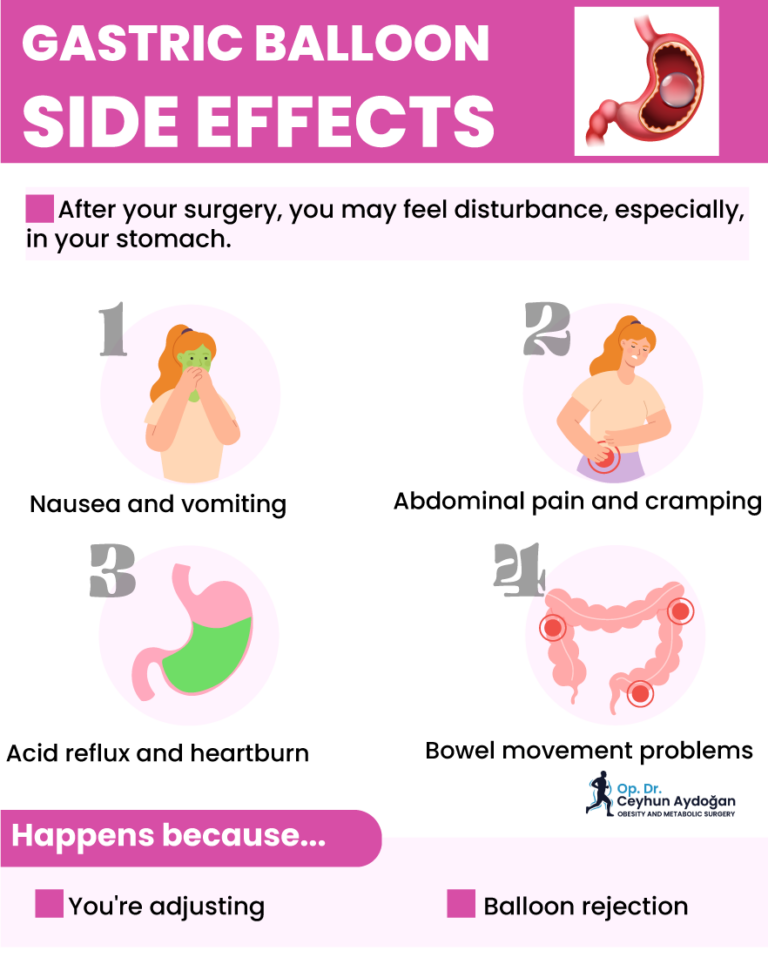Chapter 4
Gastric balloon side effects can happen to anyone who has had this endoscopic balloon surgery. For the stomach, a balloon is a foreign object. And the body does not know if it will harm the body. So, it tries to fight it. During this time, patients might experience gastric balloon side effects. Of course, these will not last too long. Your body will get used to it, and you will not be facing these problems.
There are certain precautions to be taken. Your surgeon will give you the instructions you need. With a diet program and certain prescribed medications, you will be able to not only manage them but also avoid them.

Why do side effects occur after gastric balloon surgery?
Side effects of gastric balloon are pretty common. The critical part is the reason behind it. Aside from the medical challenges a balloon may bring, which are extremely rare, there are two possible reasons for these gastric balloon side effects: the stomach trying to adjust to the gastric balloon and the stomach rejecting the balloon.
Adjustment phase
The balloon used for the procedure is non-dissolvable and indigestible. And the stomach is not used to having an item inside of it that it cannot break down. That is why the stomach reacts to the balloon, causing the side effects. This will last 2-4 weeks maximum. To make the adjustment phase more comfortable, you will be given a progressive diet plan, starting with liquids.
After the adjustment phase is over, you should feel a lot better and the side effects should be long gone. And you should continue your weight loss journey with ease along with continuing your daily normal activities.
Rejecting the balloon
The gastric balloon may not be for everyone. For only 1 out of 10 gastric balloon patients, it is possible that their bodies may reject the balloon. And if that is the cause of the symptoms they are experiencing, removal is necessary. In these rare cases, patients can opt for an adjustable gastric balloon as it can be reduced in size and the stomach can better tolerate it.
Navigating the potential side effects of gastric balloon surgery
These side effects mostly influence the digestive system. Mostly the stomach and the bowels. If these are left untreated, they might become long-term side effects of gastric balloon. Which will eventually lead to an early gastric balloon removal. To avoid that from occurring, one needs to take precautions to manage or avoid them. Which is mostly following the instructions given to them and being in touch with their healthcare provider. Generaş gastric balloon side effects are:
- Nausea and vomiting
- Abdominal pain an cramping
- Acid reflux and heartburn
- Irregularities in bowel movements
Let’s take a look at them one by one and see why these side effects occur, and how to prevent and overcome them.
Nausea and vomiting
If you are feeling nauseous and even vomiting after gastric balloon, do not fret. It can be normal for the first couple of weeks. To avoid nausea and vomiting in the best way possible, patients should carefully follow their progressive diet. It will help your stomach have an easier time trying to adjust to the balloon. If you were to neglect some specific guidelines, you might experience this side effect or it can be more severe.
You might also be prescribed stomach protector medicines. These will help balance stomach acid, indirectly causing the stomach not to overwork while trying to digest the balloon, as it cannot be digested.
Abdominal pain and cramping
Postoperative gastric balloon stomach cramps and pain are also common side effects. During the adjustment phase, the weight loss balloon disturbs the muscle of the stomach wall. And it can cause stomach discomfort. You can help manage this side effect of gastric balloon by going on regular walks. And if you are prescribed any painkillers, you can also take them to help with what you are going through.
If you have taken your painkiller and still feel discomfort, it might be because of gas build-up. Try going on a walk in this situation. Walking and going up and down the stairs can help with the built-up gas to move and exit your body.
It may not always be possible to avoid abdominal pain and cramps. However, you can still take precautions. Follow your dietary guidelines word by word and try to adopt regular exercise habits. These are tailored to help you with your recovery, your adjustment phase, and minimize the possibility of them occurring as much as possible.
Acid reflux and heartburn
Gastric balloon acid reflux and heartburn are other common side effects. These can be triggered by previous existing acid reflux or caffeine, alcohol, spicy foods, and fatty foods. You will most likely be prescribed stomach protector medicines. Proper use of these medicines, such as PPI (proton pump inhibitor) as instructed by your surgeon, will help avoid experiencing these side effects.
If you are already experiencing these side effects, it is recommended that you have some milk or dairy. It will help with acid reflux, and indirectly heartburn. However, if you have a history of acid reflux, it is not recommended that you have this procedure as it can worsen the reflux.
Of course, there are also other ways to avoid it. You might experience some abdominal pain in the early stages after eating. If you do, do not lie down as it can trigger acid reflux. Go for a walk instead, and try going up and down the stairs.
Irregularities in bowel movements
As you are adjusting to eating smaller portions, your body also tries to get used to that. And that may cause some irregularities in bowel movements.
Gastric balloon diarrhea usually occurs when patients are first reintroduced to solid food. This can mean that you are not quite ready for it yet. If you do deal with this problem, make sure to let your dietitian know and keep yourself hydrated, as diarrhea can lead to dehydration.
Gastric balloon constipation can happen in 2 cases. One reason is the adjustment phase, and the other is not drinking enough water or not consuming enough fiber. To manage and avoid this problem, you should keep yourself properly hydrated and don’t forget to eat your fibrous fruits and vegetables.
Kim SY. The Effect of Endoscopic Bariatric and Metabolic Therapies on Gastroesophageal Reflux Disease. Medicina. 2021;57(8):737.
Ramhamadany EM, Fowler J, Baird IM. Effect of the gastric balloon versus sham procedure on weight loss in obese subjects. Gut. 1989;30(8):1054-1057.

